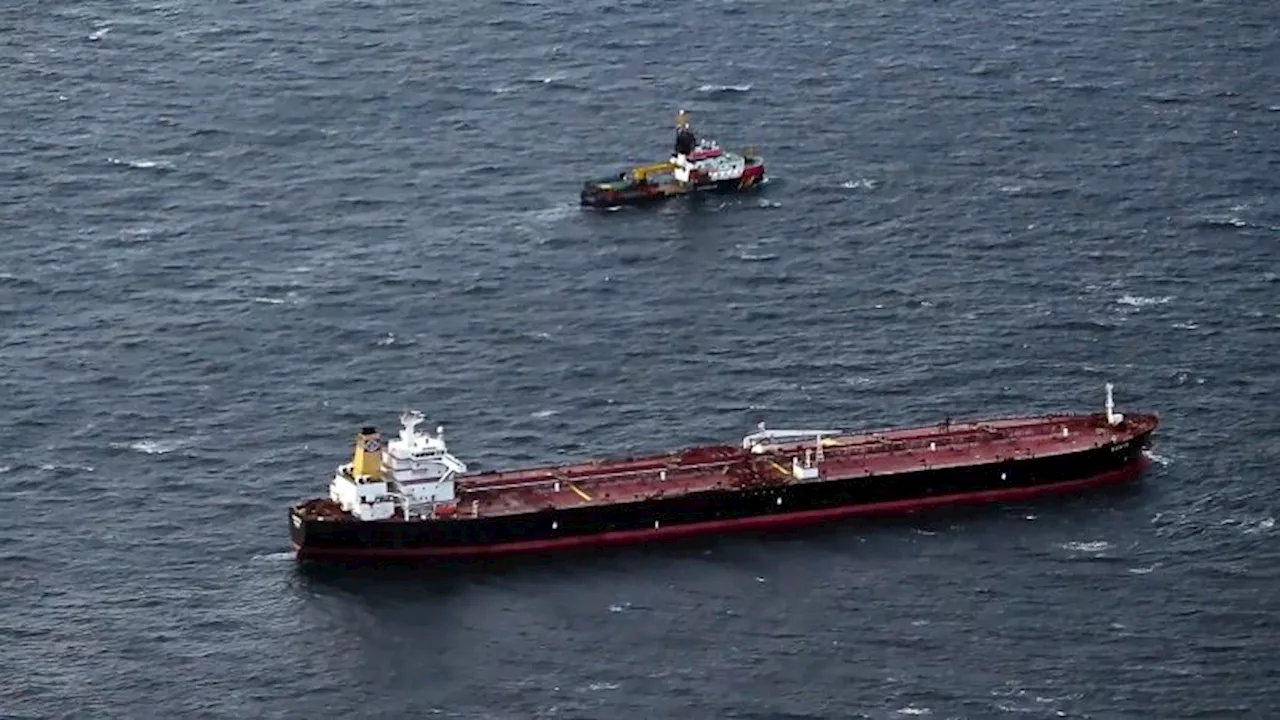After nearly 3.5 decades, the Baltic nations of Estonia, Latvia, and Lithuania will sever ties with their Russian electricity grid, marking a symbolic victory in their efforts to distance themselves from their former Soviet overlords. The move, spurred by Russia's invasion of Ukraine, underscores the Baltic states' commitment to their European Union allies and signifies a shift in the regional energy landscape.
Nearly 3 1/2 decades after leaving the Soviet Union, the Baltic countries of Estonia, Latvia, and Lithuania this weekend will finalize the severing of their electricity grid connections to neighboring Russia and Belarus, officially turning to their European Union allies.
This move, rich in geopolitical and symbolic significance, was significantly accelerated after Russian President Vladimir Putin ordered the invasion of Ukraine three years ago, severely damaging Moscow's relationships with the EU. \'This is physical disconnection from the last remaining element of our reliance on the Russian and Belarusian energy system,' Lithuanian President Gitanas Nausėda told The Associated Press in a recent interview. EU chief Ursula von der Leyen and other dignitaries are expected to attend a ceremony on Sunday as a specially-made 9-meter (29.5-foot) tall clock in downtown Vilnius counts down the final seconds of the Baltic states' electricity ties to Russia. \The Baltic countries, all members of NATO, have long held strained relations with Russia since declaring independence from the USSR in 1990. This tension further intensified with Russia's full-scale invasion of Ukraine in 2022. Over the years, sixteen power lines that previously connected the three Baltic states with Russia and Belarus were dismantled as a new grid linking them with the rest of the EU was established, including underwater cables in the Baltic Sea. On Saturday, all remaining transmission lines between them and Russia, Belarus, and Russia's Kaliningrad exclave, wedged between EU members Poland and Lithuania, will be switched off one by one. \The Baltic Power System will then operate solo for 24 hours in an 'island operation mode.' The next day, the power system is set to merge with the Continental European and Nordic grids through several links with Finland, Sweden, and Poland. The Kaliningrad region, lacking land connections to mainland Russia, already relies on its own power generation, according to Litgrid, Lithuania's electricity transmission system operator. \Kremlin spokesman Dmitry Peskov stated that the disconnection plan was announced well in advance by the Baltic countries, and the Russian energy sector had taken preparatory steps to ensure smooth operation on its side. 'Those plans were announced long time ago, and they required certain actions by our and their electric companies,' Peskov told reporters. 'We have taken all necessary measures to ensure reliable and uninterrupted operation of our unified energy system.'\The three Baltic countries, sharing a 1,015-mile-long border with Russia and Belarus, formally informed Moscow and Minsk of the disconnection plan in July. Their national transmission system operators credited 1.2 billion euros ($1.25 billion) in EU and other support for helping the countries synchronize with the Continental Europe Synchronous Area. \'Lithuania has done a lot in the last 30 years to disconnect, to become independent,' Nausėda said. Three years ago, 'we stopped buying any kind of energy resources from Russia. It was our response to the war in Ukraine.' Despite the advance notice, the Baltic nations remain vigilant for a possible response from their former Soviet partners. 'The risk of cyberattacks remains substantial,' Litgrid said last week, emphasizing the need for continued vigilance, collaboration, defensive steps, and robust cybersecurity measures to effectively mitigate potential threats. Latvian Prime Minister Evika Siliņa warned on Wednesday of possible provocations but asserted that Latvia was well-prepared, with services including the armed forces and national guard stepping up their vigilance and security measures. \'Clearly there are risks, we understand that very well. But the risks are identified and there is a contingency plan in case these risks materialize,' Siliņa said. Following the disconnection announcements, propaganda campaigns emerged on social media and in printed leaflets, spreading fake news warnings about blackouts, severe energy shortages, and sky-high energy bills for consumers. 'We heard those rumors, but we are used to such things already,' said Jolanta Karavaitienė, a retired teacher, in central Vilnius. 'Of course we must disconnect from them. Given the geopolitical situation, I see no reason for us to be there (in the Russian grid).' Estonia's public broadcaster ERR has reported a surge in sales of generators
Baltic States Russia Energy Grid EU Ukraine Geopolitics Cybersecurity
United States Latest News, United States Headlines
Similar News:You can also read news stories similar to this one that we have collected from other news sources.
 Baltic States Disconnect from Russian Electricity Grid, Signaling Energy Independence and Strengthening Ties with EUThe Baltic states, Estonia, Latvia, and Lithuania, will disconnect from the Russian electricity grid on February 8th, 2025, marking a milestone in their energy independence journey. This move signifies a strengthening of ties with the EU and a reduction in reliance on Russian energy resources.
Baltic States Disconnect from Russian Electricity Grid, Signaling Energy Independence and Strengthening Ties with EUThe Baltic states, Estonia, Latvia, and Lithuania, will disconnect from the Russian electricity grid on February 8th, 2025, marking a milestone in their energy independence journey. This move signifies a strengthening of ties with the EU and a reduction in reliance on Russian energy resources.
Read more »
 Baltic States Cut Ties with Russian Electricity GridThe Baltic states of Estonia, Latvia, and Lithuania will disconnect from the Russian electricity grid on February 8, 2025, marking a significant step away from Russian energy dependence. This move, years in the making, will see the Baltic countries synchronize their power system with Continental Europe, strengthening their ties with the EU.
Baltic States Cut Ties with Russian Electricity GridThe Baltic states of Estonia, Latvia, and Lithuania will disconnect from the Russian electricity grid on February 8, 2025, marking a significant step away from Russian energy dependence. This move, years in the making, will see the Baltic countries synchronize their power system with Continental Europe, strengthening their ties with the EU.
Read more »
 Baltic States Cut Ties with Russia's Power GridThe Baltic countries of Estonia, Latvia, and Lithuania are disconnecting from Russia's electricity grid, marking a significant step towards energy independence and aligning with their European Union allies.
Baltic States Cut Ties with Russia's Power GridThe Baltic countries of Estonia, Latvia, and Lithuania are disconnecting from Russia's electricity grid, marking a significant step towards energy independence and aligning with their European Union allies.
Read more »
 Baltic States to Sever Electricity Ties with Russia, Embracing European GridThe Baltic nations of Estonia, Latvia, and Lithuania are disconnecting from the Russian electricity grid on February 8th, marking a significant step towards full energy independence from Russia and integration with the European Union.
Baltic States to Sever Electricity Ties with Russia, Embracing European GridThe Baltic nations of Estonia, Latvia, and Lithuania are disconnecting from the Russian electricity grid on February 8th, marking a significant step towards full energy independence from Russia and integration with the European Union.
Read more »
 Russian oil tanker reportedly drifting in Baltic Sea near German islandThe German news agency dpa is reporting that a Russian oil tanker is drifting in the Baltic Sea north of the German island of Rügen. Dpa reported Friday that the Eventin, believed to be carrying around 99,000 tons of oil from Russia, is en route to Egypt.
Russian oil tanker reportedly drifting in Baltic Sea near German islandThe German news agency dpa is reporting that a Russian oil tanker is drifting in the Baltic Sea north of the German island of Rügen. Dpa reported Friday that the Eventin, believed to be carrying around 99,000 tons of oil from Russia, is en route to Egypt.
Read more »
 Drifting Russian Oil Tanker Threatens Baltic Sea Amidst Ukraine WarA Russian oil tanker, believed to be part of Moscow's 'shadow fleet', lost control in the Baltic Sea near Germany, prompting a rescue effort. The Eventin tanker, carrying nearly 100,000 tons of oil, was headed for Egypt from Russia when it lost power. German authorities are working to tow the vessel to safety, but stormy conditions are hampering the operation. German Foreign Minister Annalena Baerbock condemned the incident as another example of Russia's disregard for European security and the environment.
Drifting Russian Oil Tanker Threatens Baltic Sea Amidst Ukraine WarA Russian oil tanker, believed to be part of Moscow's 'shadow fleet', lost control in the Baltic Sea near Germany, prompting a rescue effort. The Eventin tanker, carrying nearly 100,000 tons of oil, was headed for Egypt from Russia when it lost power. German authorities are working to tow the vessel to safety, but stormy conditions are hampering the operation. German Foreign Minister Annalena Baerbock condemned the incident as another example of Russia's disregard for European security and the environment.
Read more »
